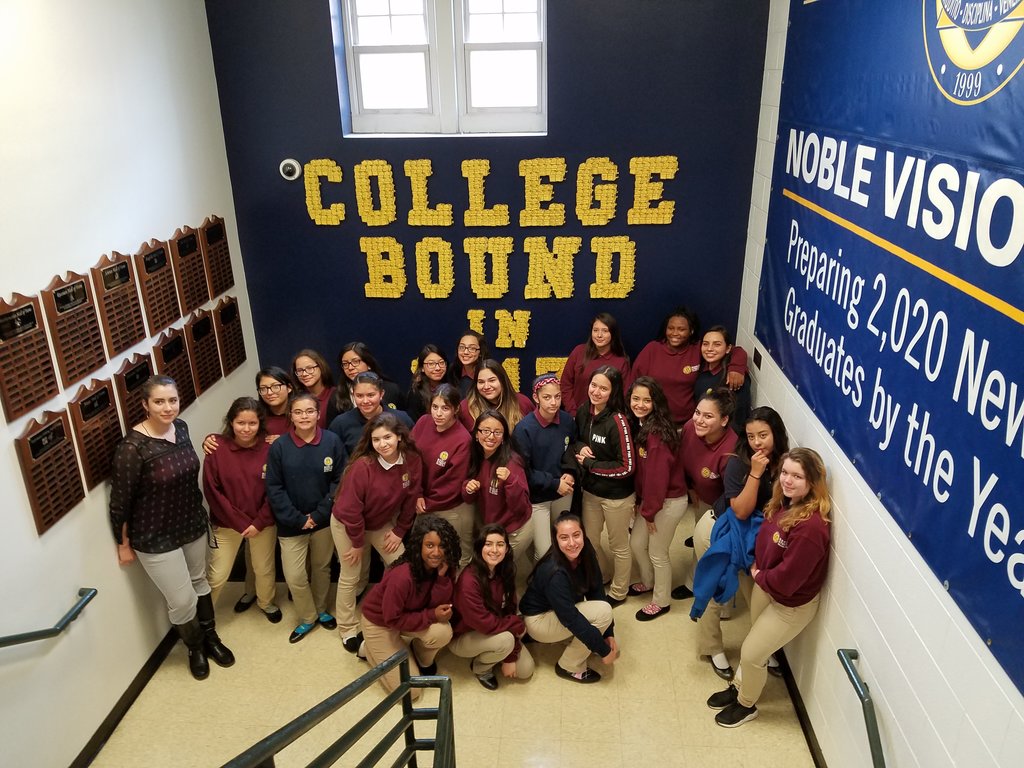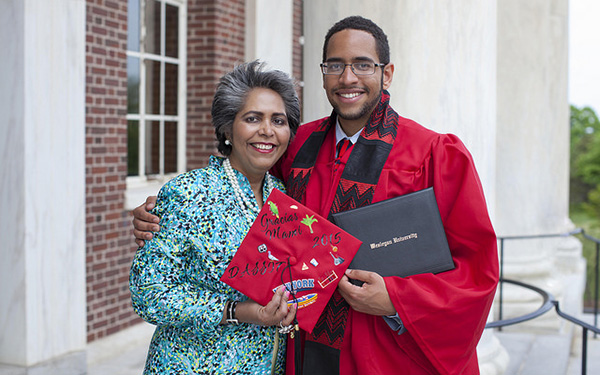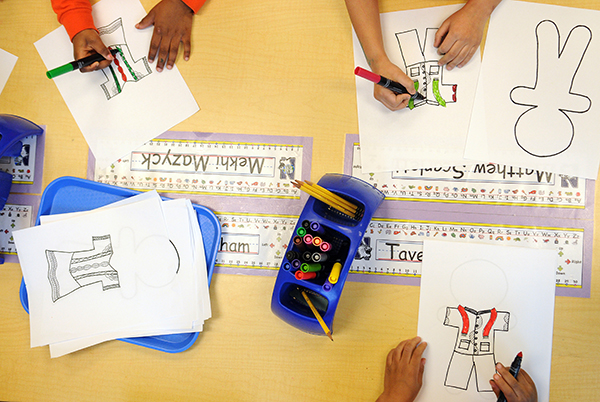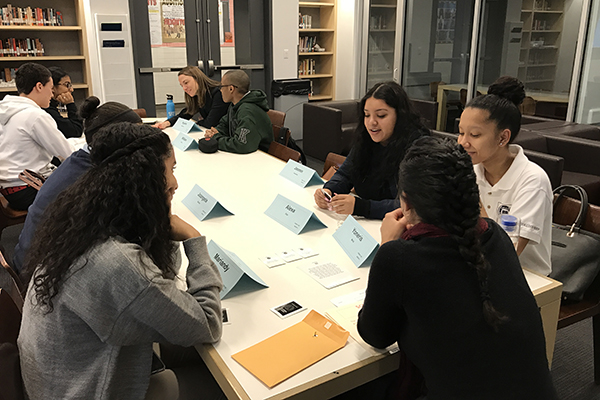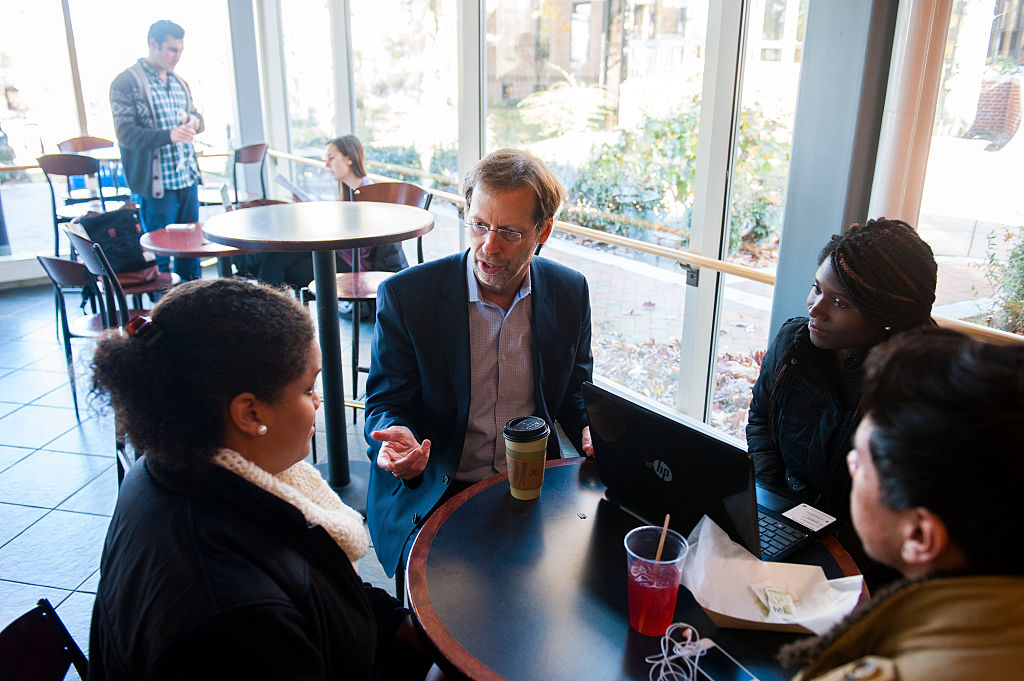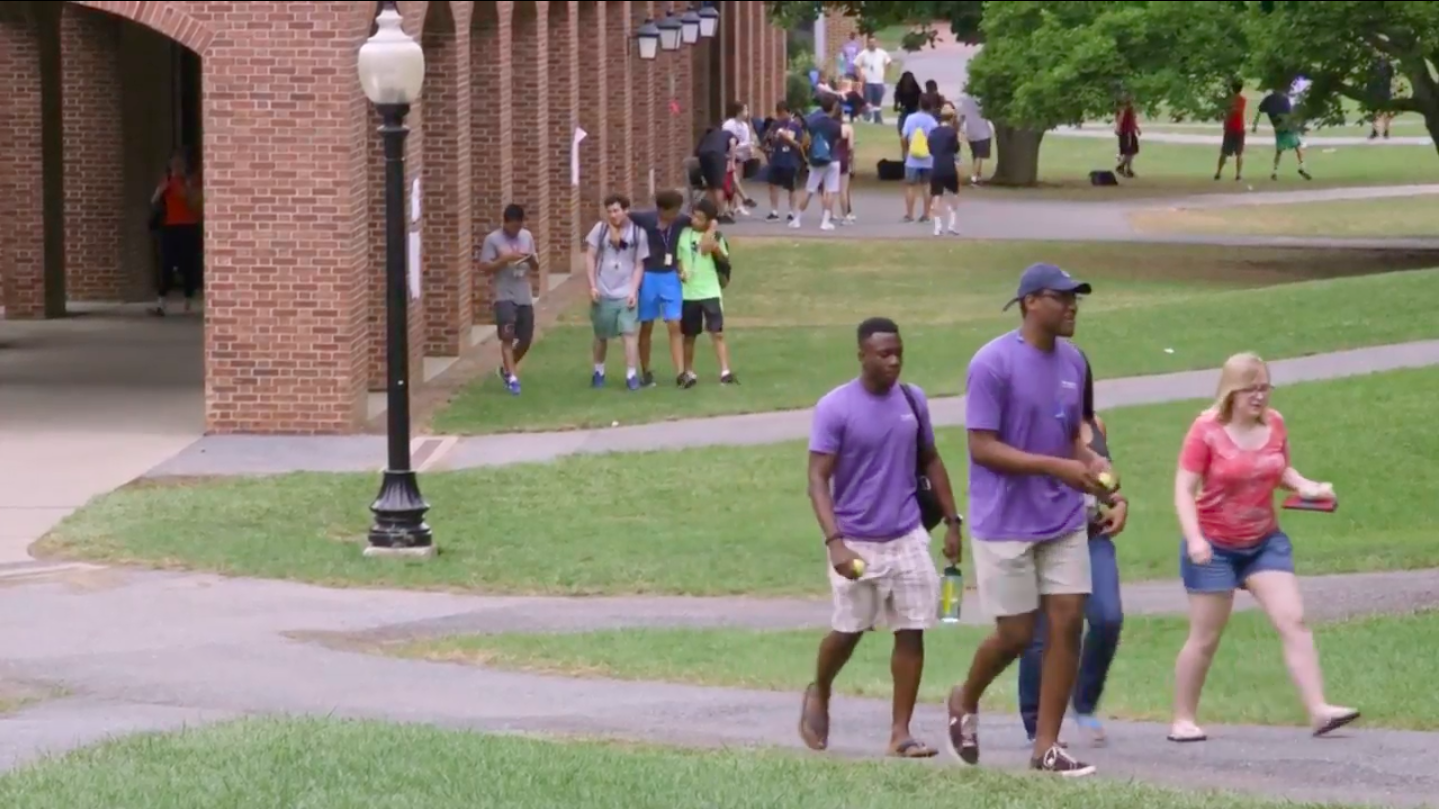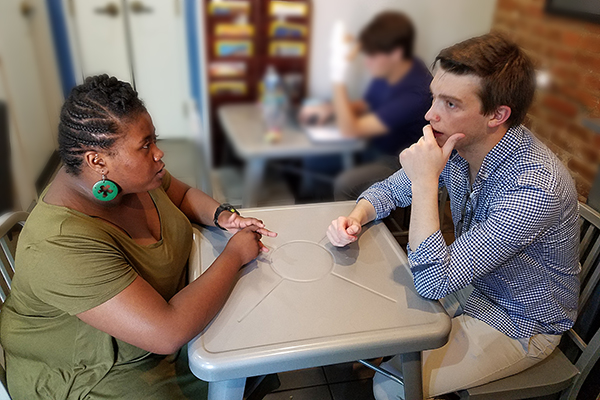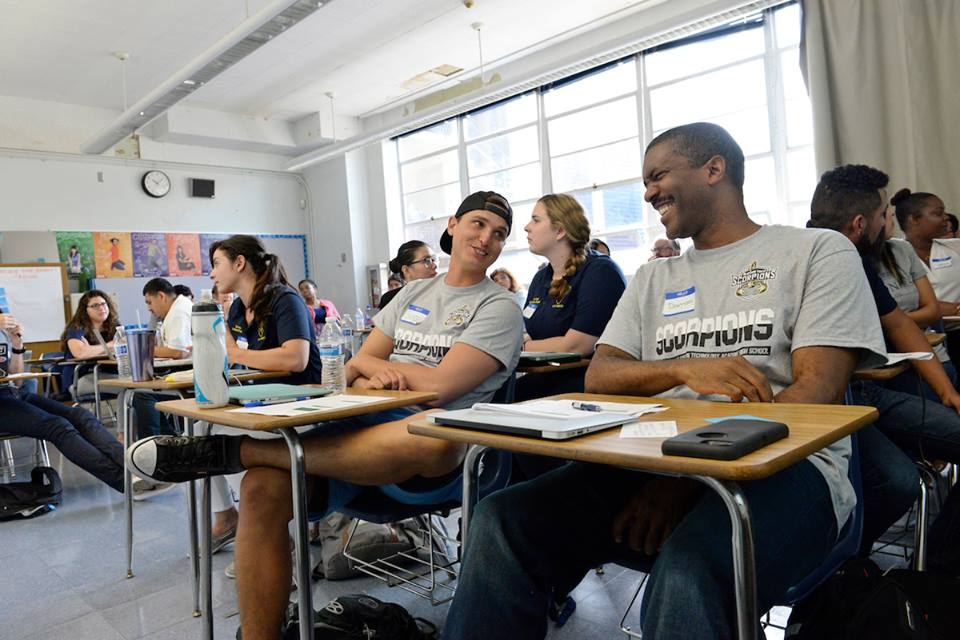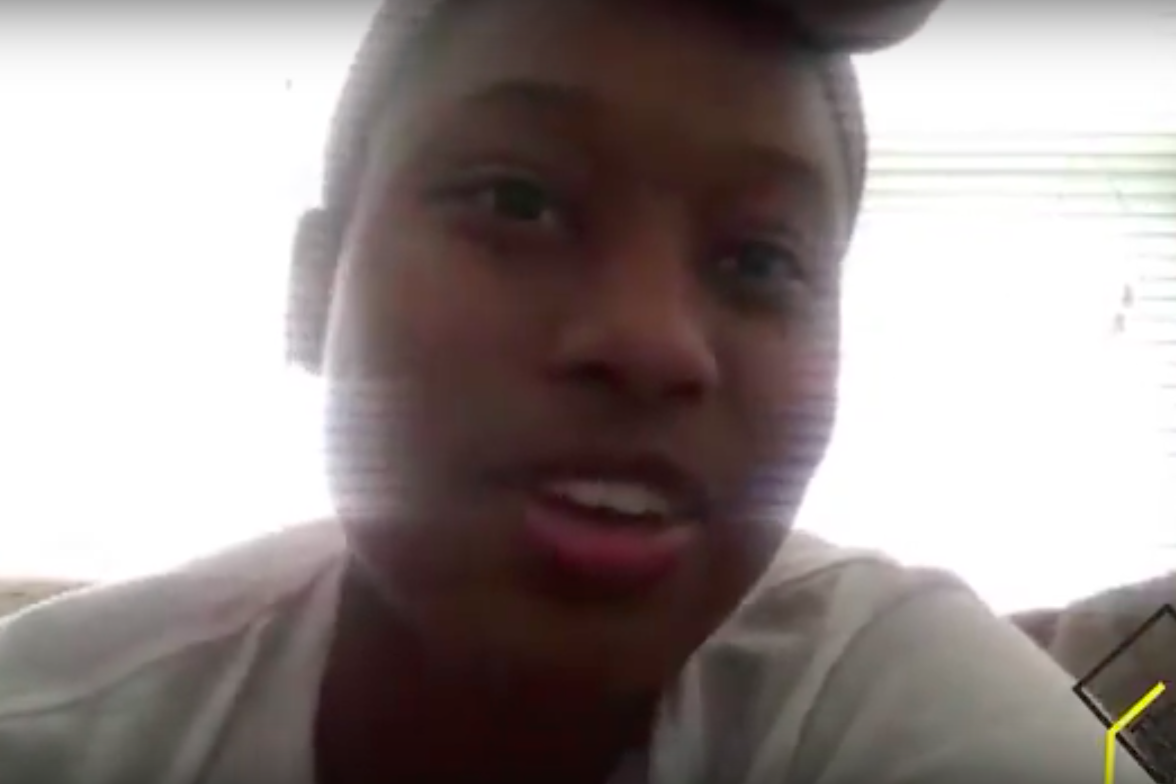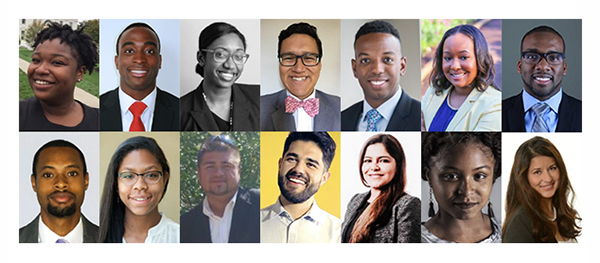Thomas: I Won a Lottery Worth Far More Than Money

After delivering the keynote speech at La Movida Inc.’s 5th Annual Scholarship Awards Ceremony in May 2016, Kei-Sygh Thomas (right) with Rafael Brito, La Movida’s president and founder. (Photo credit: Kei-Sygh Thomas)
I remember the day I won the lottery that changed my life. It was one evening in a packed room of an old church building on Custer Avenue in Newark, New Jersey.
“But mom, this is my first time in a school for more than one year,” I said. “I’m finally making friends and I don’t want to leave.”
And, of course, she just did not care.
“Do I send you to school to make friends? You were picked in the lottery and you are going to this school,” she said. “This is a good school and would be good for your future. You can make friends when you become a doctor.”
The building felt oddly familiar and I soon realized I had attended an after-school program there during elementary school a few years before. But the crowded room of students and parents all waiting to find out if they won a coveted seat in this charter school did not. I was restless with 11-year-old preteen angst and did not know anything except that I wanted to be anywhere but there.
I didn’t really understand what a lottery was, but I knew that it implied that I would win something. I remember starting school that fall at KIPP TEAM Academy, wondering when I would actually see some money. Little did I know that what I had won was worth far more than any money I hoped to receive. I had won a seat in a school that promised to help me make it to and through college.
It was a decent-looking school, too, with the navy blue plastic chairs and the wooden open front desk with the laminate top and the plastic book box. There were SMART Boards in some classes, pennants with colleges like Notre Dame, Vanderbilt, and Princeton — things that I quickly learned were common in some schools but absent from most in my neighborhood.
That place seemed special. I had to commit to doing homework and actively participate in class in middle school, because like Principal Shawadeim Reagans said, “This [learning] is not a spectator sport.”
I was expected to contribute in some way because sometimes just being present wasn’t enough. I was expected to respect my classmates and do the right thing in the absence of teachers. I remember staying after school with Ms. Washington and assisting a classmate with math while she worked with another student because at this place, if a teammate needs help, we give.
At this place, what was beating inside my chest was just as important as the knowledge I was accumulating in my head.
As I made my way through middle school and graduated from high school, I knew how to work hard and be nice — as the KIPP motto espouses — but had no idea just how rocky the climb to and through college would be.
Once I got to college, I realized that there was nothing that could have possibly prepared me for what I was about to experience. I went from living in a predominantly Black/Latinx city and going to a Black/Latinx school to being in a predominantly white suburb on a 186-acre wooded campus with very few students who looked like me. I was often the only black student in my classes and was subject to more microaggressions and bigoted remarks than I could count from both professors and students.
The Imposter Syndrome came over me and I didn’t feel like I belonged. I bombed my freshman year and things didn’t look promising. Sophomore year was remarkably better but still, my confidence was shattered and I was not happy. I chose my school, Drew University in Madison, New Jersey, based on the generous financial aid package I received, not because it was necessarily the right fit.
And juggling life outside of academics was hard. I had to work to pay my way through school, pay for personal expenses, and send money back home to be a contributing family member. It got to the point where I questioned if school was even worth it since it seemed to bring more anxiety and worries than it did optimism.
But I was able to develop a support network of amazing friends at Drew, many of whom were first-generation college students like me, and counselors in the Educational Opportunity Fund program, a national program that provides financial support and assistance to students from disadvantaged backgrounds attending college. I found supportive professors, particularly in the English department, and my KIPP Through College advisers and former teachers at Newark Collegiate Academy always helped me advocate for myself.
But I truly didn’t understand what the opportunity for me to be in college and eventually graduate meant until I saw how it fit into my personal aspirations and how much it inspired others. Throughout my journey, I’ve been given platforms to share my story with hundreds of students, educators, and changemakers, from speaking at a college success series this summer hosted by Rutgers University Newark and the Newark City of Learning Collaborative, to sharing my thoughts on college attendance and graduation in front of Newark Mayor Ras Baraka at the collaborative’s launching in 2015, to giving a keynote address in Spanish and English at a scholarship awards ceremony in 2016 for Black and Latinx students.
I realize that getting my degree will be an accomplishment not only for myself, but for the people who invested in me, the people who believed in me, for my sister, who is a freshman at Villanova University and looks up to me, and the other people I met along the way.
I was reminded a few weeks ago in the most tragic and brutal way possible of what’s at stake in being able not only to reach college but to stay there.
On Aug. 21, I lost a dear friend from college to senseless gun violence. She was visiting a friend on her way from work — an innocent bystander caught in the middle.
I know firsthand the impact gun violence has on families and communities. As much as I would like to harbor hate for the person behind the trigger, I feel pity more than anything. Caught up in their lives with so few choices, perhaps a lifestyle of violence was a choice they felt they had to make.
Addressing the issues causing this violence, be it poverty or lack of opportunity, is needed. Had the person committing the act had the chance to attend a well-performing school and the access to attend university, perhaps they would have made different choices. Different choices that would have allowed for my friend and others to be here.
Education afforded me choices.
It’s amazing to think the day I “won” the lottery to a very special school was the event that would change my life for the better. I won my ability to choose, to go to college, decide which careers I’d like to explore, and the choice to change someone’s life instead of take it.
Despite many challenges and setbacks, I am working toward finishing my bachelor’s degree in English in 2018 and hope to possibly establish a scholarship in my friend’s memory to help other first-generation students pursue their dreams past high school.
And no, mom, I do not want to be a doctor like you wanted, but I’m confident that I will be nothing short of amazing.
Kei-Sygh Thomas is a student at Drew University pursuing her bachelor’s degree in English. She is also an editorial fellow for The 74.
Your Alumni
Story Here
We Recommend
-
Noble Network of Charter Schools: It’s Not Just About Going to College, It’s Also About Leaving to Learn Outside Chicago
-
King & Peiser: College Completion — Charter Schools as Laboratories
-
Q&A With UNCF CEO Michael Lomax: We’ve Got to Garner More Resources for Low-Income Kids for This Journey “To and Through” College
-
Gilchrist: My Charter School Saved My Life
-
Exclusive: Data Show Charter School Students Graduating From College at Three to Five Times National Average
-
WATCH: At Newark’s North Star Academy, 100% of the Class of 2017 Is Going to College
-
WATCH – The Alumni Tell Their Stories: College Gave Jadah Quick Upward Mobility
-
The Data Behind The Alumni: Unbundling Facts, Figures, and Caveats


